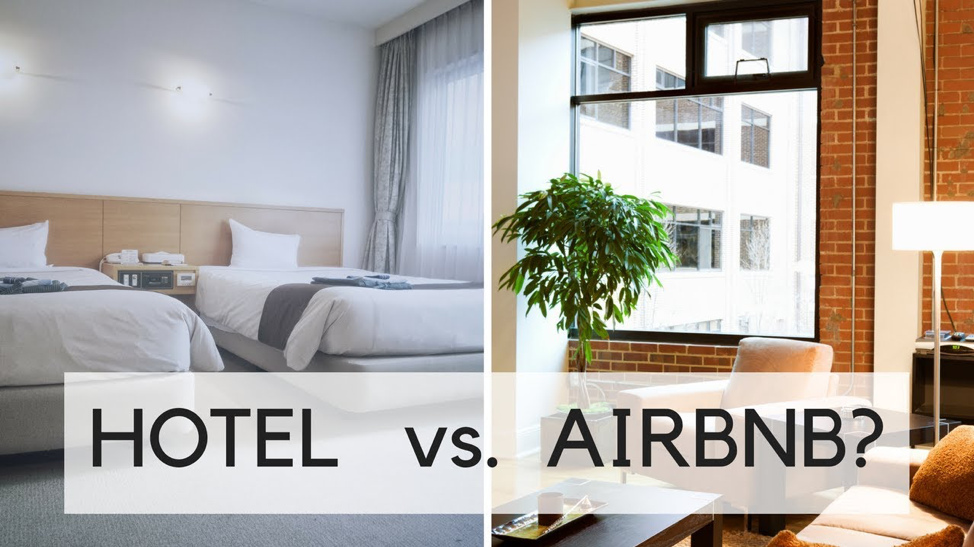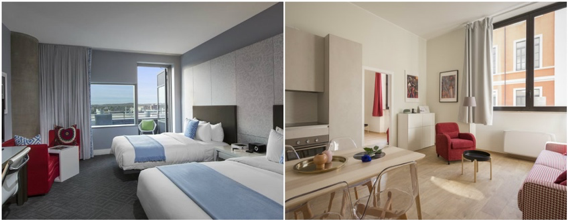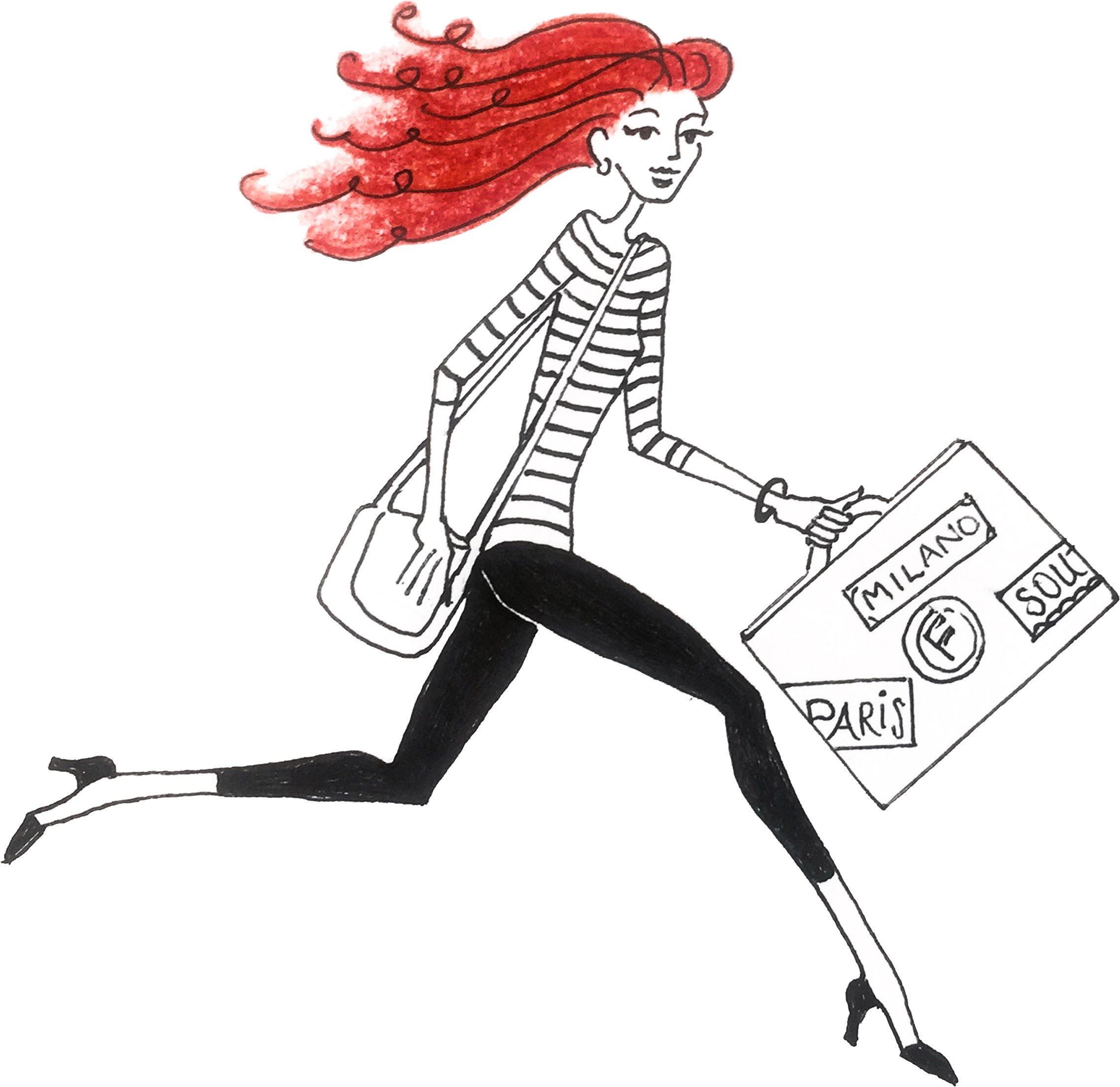As travelers get back on the road, they’re weighing stay options based on safety, with disinfecting and distancing among their top concerns. Airbnb and hotels are responding with new protocols. Which is the better choice?

Is staying in a hotel risky right now?
Hotels are places where people gather, filled with staff, guests, and visitors. They are where many objects—from remote controls to mattresses—are shared and reused by guest after guest, sometimes with mere hours in between. Round-the-clock staff, room service, daily clean towels, a made bed: if these didn’t raise red flags for travelers in the past, they likely will now at a time when social distancing and sanitizing are on most people’s minds.
We know the coronavirus is spread primarily from direct contact with people, and people can be infected—and infectious—without showing symptoms. This makes hotels potentially risky as places where people typically unknown to each other and from unknown origins gather and interact.
Note: If you imagine you’re reducing your risk exposure by staying at a remote or rural hotel rather than one a big city, think again. What really matters is the prevalence of infection at that venue at the time you will be staying there. Small town with no new cases in the surrounding area for the past two weeks? Probably good. Small town near a meatpacking plant that has a high rate of infection? Probably bad.
What are hotels doing to mitigate risk?
Many hotel chains have announced sweeping operational changes, implementing new methods that focus on cleanliness, social-distancing, and contact-free transactions.
For example, Marriott Bonvoy hotels established the Marriott Global Cleanliness Council to revise its cleaning and safety standards. Per the new rules, high-touch surface areas must be treated with hospital-grade disinfectants and disinfecting wipes are to be available in every room. Lobby signage reminds guests to social distance, with furniture removed or rearranged to allow more space to do so. Hand-sanitizing stations are to be installed throughout properties, and guests can opt to use their phones to check-in, access their rooms, make requests, and order room service to be delivered. Other chains are adopting similar rules.
What precautions should you take in hotels?
Before arrival, ask your hotel what cleaning products they use—they should include an approved EPA-registered disinfectant—and what their cleaning protocol is.
Find out how recently your room was occupied. The virus is known to settle out of the air quickly, about one to three hours under experimental conditions, and perhaps much less in real-world scenarios. That means air quality in your room is not likely to be a concern if no one else has been in there for three hours prior to your arrival. To be even safer, you may want to request a room no one has stayed in for a day or two.
Check that your room was thoroughly cleaned. Good indicators it was include the absence of dust (don’t forget to check the heating and cooling vents) and clean bathrooms. That said, there are “high-touch” areas in the room you still may want to disinfect yourself. These include phones, TV remotes, door handles, bathroom faucets, toilet handles, and flat surfaces such as nightstands and coffee tables. In the case of furniture, if someone was sick in the room and coughing, the top surfaces are ones the virus could settle onto.
You may want to avoid the hotel pool and gym; both are places where it can be hard to maintain social distancing. Both also have lots of high-touch areas. And while a properly chlorinated pool apparently deactivates the virus, swimmers sometimes aspirate water and cough, potentially spreading the virus if they are infected.
Hungry? Your safest option is room service or ordering delivery from an outside restaurant.

What about staying in an Airbnb?
A private homestay typically features more space to spread out (especially for groups or families) and more residential-style comforts (kitchens, washers/dryer) than a hotel. Booking an entire home can also mean fewer person-to-person contacts than a hotel, including no-touch check-in (retrieving keys from a lockbox instead of an in-person exchange) and no other guests on the property. Hardwood floors (how often are hotel carpets cleaned?) and windows that open may be other bonuses.
What are Airbnb and other homestay lodgings doing to reduce risk?
Like hotels, homestay platforms have revamped their cleaning and safety protocols. For example, Airbnb announced its Enhanced Cleaning Initiative, billed as “the first overarching standardized protocol for cleaning and sanitization in the home-sharing industry.” The program gives hosts three different options for listing their homes.
The first option is the most rigorous. Hosts enroll in and complete a certification program known as the Cleaning Protocol. This includes learning about using personal protective equipment (masks and gloves) and approved disinfectants. Listings in this program must maintain a 24-waiting period after a guest checks out before anyone can enter to clean as a way to mitigate the risk of virus contraction via airborne particles. In other words, the property can’t be flipped on the same day, a common practice pre-coronavirus. Certification under the Cleaning Protocol is free for a host, who, as before, determines the nightly price and sets the cleaning fee for the listing, both of which are visible to guests during the booking process.
The second option, less stringent than the Cleaning Protocol, is Booking Buffer. This program enforces a 72-hour vacancy period between stays (reservations are blocked on the platform) so guests may feel more secure knowing there has been no activity on the property other than cleaning during that time. Under Booking Buffer, the listing remains vacant for 24 hours after the guest leaves. Thereafter a host or cleaning team can come in, with guests permitted to enter after another 48 hours passes.
The third option? Hosts can choose to pass on both Cleaning Protocol and Booking Buffer. But just how appealing will their listings be in the current marketplace?
Cleaning Protocol and Booking Buffer are in the process of being implemented; listings are starting to reflect the certifications. Other homestay platforms are expected to implement similar protocols.
What precautions should you take in an Airbnb?
Regardless of whether your Airbnb is a Cleaning Protocol or Booking Buffer listing, you still may want to take your own precautions. Run utensils and dishware through the dishwasher and launder bed linens and towels if there is a washer and dryer. Disinfect flat surfaces like kitchen countertops, bathroom counters, coffee tables, and nightstands. Consider running a disinfecting wipe over phones, TV remotes, door handles, bathroom faucets, and toilet handles, too. And like in a hotel room, check for dust; if you see it, odds are the place wasn’t thoroughly cleaned.
Note: Yes, it’s annoying to pay a cleaning fees and then feel as though you still have to clean the place yourself upon check-in. But the peace of mind may make it worth it, along with the benefit of having a place to stay that is yours alone.
Which to choose: hotel or Airbnb?
If person-to-person interactions give you the most concern, an Airbnb or similar homestay may be your best option. Select a private home with openable windows and contactless check-in rather than a unit in a building where you have to share public places like the elevator and parking garage.
If a disinfected living space is your top priority, you may feel better at a hotel. In addition to more experience implementing protocols like enhanced cleaning procedures and sourcing the best products for the job, hotels have a brand reputation to protect. Who do you trust more: a hotel chain used to establishing procedures and monitoring compliance or Airbnb, which traditionally relies on reviews and complaints to out hosts who don’t meet promised standards? Just because your host went through training doesn’t mean he or she is using the right products and following the cleaning procedures. Trust matters more than ever now as hotels and homestay platforms try to attract returning travelers.
Twist’s Take: Hotel or Airbnb? It’s up to you: (perhaps) better cleaning versus fewer/zero interaction with other humans. No matter where you choose to stay, minimize your risk by wearing a mask, social distancing, disinfecting, and practicing hand hygiene.
